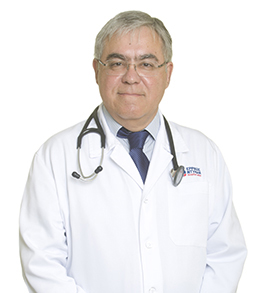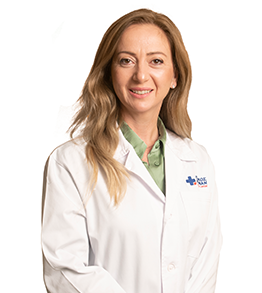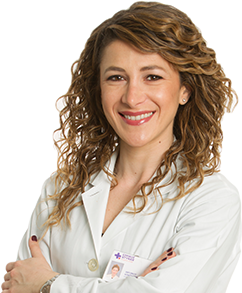
Diabetes Clinic
Diabetes mellitus is a metabolic disease that occurs when the pancreas fails to produce insulin or when insulin does not function properly in the body. This results in an increase in the concentration of blood sugar (hyperglycemia) and a disturbance in the metabolism of glucose, lipids and proteins. There are three main types of diabetes mellitus: type 1, type 2 and gestational diabetes, while there are other special types.
The Henry Dunant Diabetes Clinic examines people with any type of diabetes or prediabetes: patients with type 1 insulin-dependent diabetes using therapy with multiple insulin injections or an insulin pump, people with type 2 diabetes taking antidiabetic tablets and/or insulin, and women with gestational diabetes.
The Diabetes Clinic is staffed by internists-diabetologists, an endocrinologist and a nurse trained in the treatment of diabetes. It is supported by the Hospital’s Department of Nutrition and Dietetics, while there is close collaboration with physicians of all medical specialties (cardiologists, ophthalmologists, nephrologists, vascular surgeons, gastroenterologists, dermatologists, orthopedics). It is also supported by the laboratories (hematology, biochemistry, microbiology, radiology and nuclear medicine).
The Diabetes Clinic keeps a complete file of the patient's medical history, while at each visit the patient’s weight as well as his/her blood pressure, pulses, oxygen saturation and blood glucose are measured. The physician then takes the patient’s recent and past history and performs physical examination. Attention is given to the diabetes-specific complications. Usually, the patient either presents his personal diary with the glucose readings recorded at home, or nowadays, with the use of the continuous glucose monitoring devices, the recording is displayed on the computer screen. The physician checks the laboratory test results and explains them to the patient, discusses the next steps and medication and electronically prescribes the drugs, consumables and recommended tests. Possibly communicates by phone with physicians of other specialties about the patient's issues, or to request urgent tests such as x-rays. In cases of diabetic ulcers, the physician may clean the ulcer, send cultures and apply dressings. If necessary, he/she completes medical certificates or certificates for benefits or disability pensions. Finally, the physician sets the next appointment.
In the clinic, there is considerable experience for educational activities of the public.
Scientific staff
Tsapogas Panagiotis
Petsiou Elena
Katsiveli Penelopi
Christodoulou Dimitra
Antoniou Constantina
Equipment
According to the specifications of the ministerial decisions, the examination room is fully equipped with whole blood glucose measuring devices, urine ketone measuring devices, sphygmomanometer for measuring blood pressure, oximeter, scale, anasthimeter and glycosylated hemoglobin measuring device. The examination room is also equipped with a pedobarograph, monofilament and a tuning fork, as well as a doppler device for the examination of neuropathy and arteriopathy. There are a number of glucose meters provided free of charge to patients. The office is also equipped with a computer and a printer.





